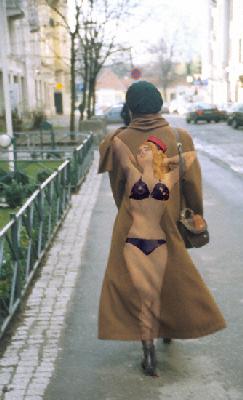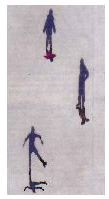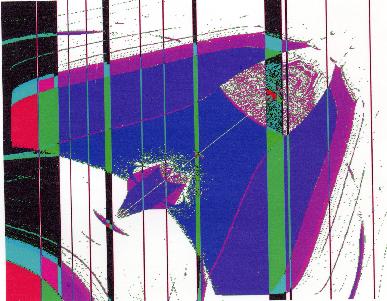given by Paul Grobstein
for the Symposium
on Beauty
Bryn Mawr College Center
for Science in Society
30 March 2004
The Elephant Presumption: there is a there there
Paul is introducing with some subtleness the notion that beauty is an optical illlusion: not "really" there.
Whever 'there' is . . . .
Getting Some Observations/Data
As we saw, there was a diversity of responses to the survey, yet also duplication among responses.
From this Paul leads us into his favorite topic: THE BRAIN. Hence, "out there" is physically external to our bodies and "in there" is within us, specifically the brain.
He suggests if many different external "triggers" elicit similar beauty responses, the similarity must be within ourselves since the external triggers may differ.
Are you "happier not thinking about it?"
- Different people differ in their attribution of "beauty" to particular "things out there".
- The differing attributions are not totally random. To differing degrees particular different "things out there" evoke in different groups of people similar attributions of "beauty".
- "Beauty" must have to do with an interaction between "things out there" and "things in here". And "things in here" must have some similarities as well as some differences among individuals.
- There are no obvious commonalities among the "things out there" to which either individuals or groups attribute "beauty".
- "Beauty" overlaps with, but can usually be distinguished from other attributions, both among individuals and within individuals.
- If there is a there there, "beauty" must be a single something "in here" that can be produced by different "things out there".
- People in general have great difficulty in accounting for their personal attributions of "beauty", but are in general quite comfortable (even happier?) making them without "thinking about it".
- "Beauty" must have to do with something "in here" other than "thinking".
Relevance of the brain?
He proposes: Thinking is not typically part of beauty experience . . .
as many of you have said or written, beauty is usually associated with feeling emotion.
Beauty is "created" of the brain --not too different from how color is "created".
But very different in complexity of brain events that create it.
- Different
inputs can produce the same "state"
- The
same input produces different states in different people
- The state produced may be influenced by experience, culture,
and thinking but
does not depend on thinking (and may not depend
on specifics of experience or culture)
-
"Beauty", like "sound" or "color" is a creation of the brain
"localized" ??? Not meaning, a specific location in brain.
Rather (I think) Paul intended to emphasize that the beauty experience is from within not from without.
Paul's brain: version 1
"Beauty" can be "localized" within the brain

These first 2 points made me consider (again) what, exactly, is the goal of this course? Is it to reveal the information of the "analysis" that leads to the beauty experience?
(not so for me, I believe)
In another discussion forum, there was a discussion about whether visual vs olefactory stimulus into our"frog brain" (i.e., lower brain) was the more complex process. . . .
- "Beauty" is the result of an unconscious
analysis and is reported to the I-function (conscious) as the
resultant of that analysis without any information about how the
analysis was carried out.
- The only way to determine how the analysis is
done for any given brain is to observe the outcomes of the analysis
for a series of inputs (in others and/or in oneself).
- The analysis itself can reasonably be
expected to be somewhat the same and somewhat different in
different
brains, and to reflect genetic information as well as individual
experiences,
cultural factors, and activities of the I-function. It is
likely not to be predictable from any of those factors operating
alone,
and hence to be "surprising" to the individual doing the
analysis (more so in the case of oneself than of others).
Hence data collection
(see above) is worthwhile for at least two reasons (personal
and social/cultural)
- Some hints for further neurobiological inquiry:
- Visual and auditory inputs access the esthetics processor more readily than do somatosensory and gustatory inputs?
- There may be population differences in the esthetics processor between different groups of humans as well as in the relation of the esthetics processor to other boxes.
Social/political and personal considerations ...
From biology/neurobiology (leaving sex/gender aside for the moment)
2) universal very-difficult-perhaps-impossible psychotherapy
Even if one could, one would probably not be wise to abolish the category since "beauty" as a discriminative category is a resultant of evolution and likely to have some value.
Paul quotes me for one example of "why" beauty has a purpose.
As a second example, he quotes from Ted Chiang's "Liking What You See.."
. . . beauty is misused . . .
"An interest in beauty is generative" (Burgmayer)
"This doesn't mean I agree with my parents' having me grow up with calli. I still think they were wrong; they thought getting rid of beauty would help make a utopia, and I don't believe that at all. Beauty isn't the problem, it is how some people are misusing it that's the problem ... I don't know, maybe this wasn't a problem back in my parents' day. But its something we have to deal with now." .... "Liking What You See: A Documentary" in Stories of Your Life and Others, by Ted Chiang
For the same reasons, efforts to try and get people to feel/believe that "everything is beautiful" are both undesirable and likely to fail.
Beauty . . . or appearance?
"...being beautiful" . . .
or appearing beautiful?
And, do appearances gain (undue) importance and power when the label "beauty" is co-opted?
(I think) there's a BIG difference, and it's not hard to discriminate.
"Olympia", Edouard Manet
(my addition)
An alternative approach (accepting that the "real problem" IS related to human sex/gender/power) ... with appreciation for feminism (and, nonethless, trepidation)
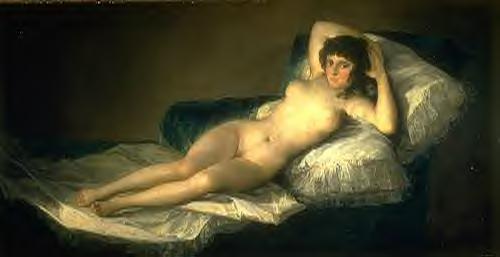
And from feminism: women in the past needed "men's gaze" to achieve influence, found it easiest to do so by being beautiful, were subject to exploitation/opression for that reason
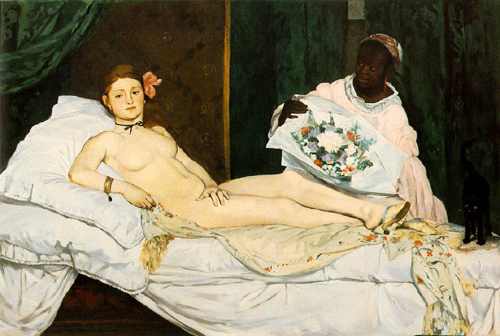
What do you think about this?
Are "women much more concerned about beauty than men, who consider beauty one of a significant number of different desirable attributes" ???
Liz: "we are addicted to beauty".
Are we????
Or are we addicted to reacting to appearances without risking a deeper "look"— a look at one's "soul". . .
 Currently
(this symposium, but with head protected):
Currently
(this symposium, but with head protected):
Women are much more concerned about "beauty" than men, who consider beauty one of a significant number of different desirable attributes. This difference is certainly abetted by culture but may well be to some extent both desirable and ineradicable.
He didn't.
(survive, that is)
". . .among equally significant ones"???
Suggestion (if I survive this far): women might be better off if they developed the ability to treat "beauty" more as (viva la difference) one desirable attribute among many equally significant ones, in themselves, in others, and in the things they/others create.
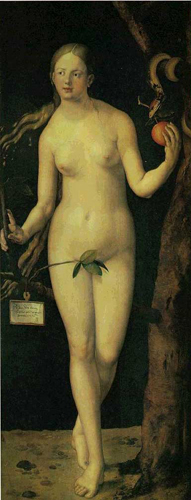 >
> > > >
>
> > > > 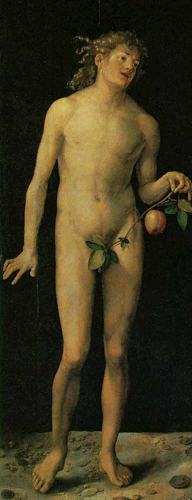
Catie
